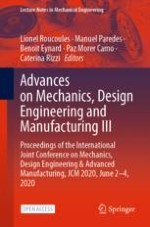1 Introduction
-
Reorienting education and learning so that everyone has the opportunity to acquire the knowledge, skills, values and attitudes that empower them to contribute to a sustainable future.
-
Strengthening education and learning in all agendas, programmes and activities that promote sustainable development.
2 Origin of the Master Degree in Circular Economy
3 Facts of the Master Degree in Circular Economy
Subject | ECTS | |
|---|---|---|
1 | Circular Economy: General Context | 6 |
2 | Eco-innovation as a Business Opportunity. Regulatory Framework and Concept | 3 |
3 | Environmental Impacts Derived from the Production-consumption of Products and Services | 3 |
4 | Environmental Management Tools in the Company | 3 |
5 | Ecodesign and Circular Economy | 3 |
6 | Life Cycle Thinking 1: Tools for Calculation and Communication | 3 |
7 | Life Cycle Thinking 2: Quantification of the Product Environmental Footprint | 3 |
8 | Circular Economy in the Company: From Ecodesign to Product Commercialization | 6 |
9 | Circular Economy in the Company: Sustainable Entrepreneurship, Business Models in Circular Economy | 3 |
10 | Circular Economy Initiatives. Business Cases | 9 |
11 | Practical Workshops on Circular Economy | 6 |
12 | Master’s Thesis | 12 |
3.1 Life Cycle Thinking: Ecodesign and Life Cycle Assessment
4 Specific Learning Outcomes or Competencies
-
To define the concepts of Circular Economy, Sustainable Economy, Low Carbon Economy and Eco-Innovation.
-
To understand and explain the changes involved in the transition from a linear to a circular type of economy, as well as to recognize the opportunity they represent.
-
To identify the current applicable environmental regulations (air, water, waste and soil) in order to carry out proper environmental management in the company.
-
To define the concept of eco-design and to become aware of the environmental, economic and social implications of product design.
-
To apply the ecodesign methodology and manage the tools available for ecodesign in the industrial field
-
To define the concept of life cycle and identify the phases of the life cycle of a product, as well as list the regulations of the Life Cycle Analysis.
-
To know and apply the evaluation methodologies and software tools for product life cycle analysis.
-
To formulate guidelines for communication and marketing with a life cycle approach.
-
To define and understand corporate and competitive strategies to integrate the environmental variable in the company and select the most appropriate strategy for each particular case.
-
To identify business opportunities in the field of the Circular Economy for different sectors, stakeholders and design proposals.
